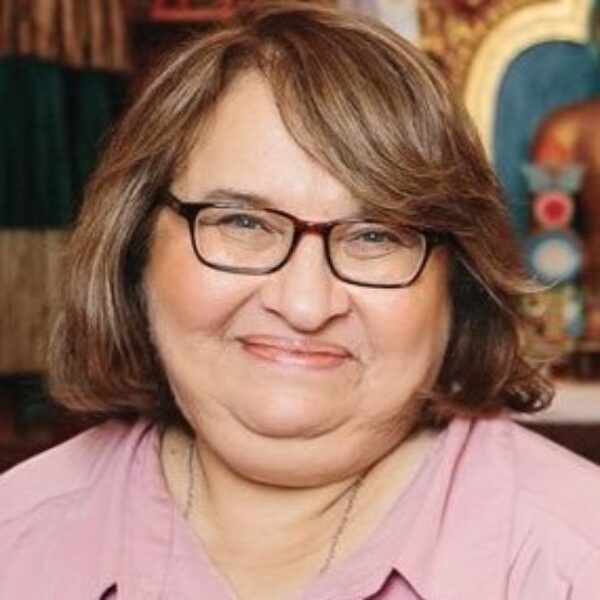
Image by Minchul Kim/Flickr, Attribution-NoDerivs.
The Conscious Effort Real Love Requires
The title of Joan Didion’s collected non-fiction, We Tell Ourselves Stories in Order to Live, communicates immense wisdom about the way our brains work. In the process of writing my upcoming book Real Love, I found myself thinking a lot about Didion’s words. What are the stories we tell ourselves, and why is it that we tell stories in order stay afloat? What is it about stories that makes us feel safer, better prepared for survival? And what does all of this have to do with love?
Love is a gargantuan topic, and one that often feels too complex to even talk about. And surely holidays like Valentine’s Day have us believe that love is, by definition, all about infatuation, admiration, chocolates, and hearts. While those things can certainly be part of love, there are also the barriers we come up against in love — the difficult stories we tell ourselves about ourselves, our self-worth, our abilities to love and to be loved.
Say we are not out to dinner with a partner on Valentine’s Day, and we feel worthless or ashamed. Often times, feelings of shame around love and loneliness in the present are inextricably linked to the pain and insecurities from our past. But in order to be able to identify these echoes as stories, we have to take a step back. We have to recognize the role we play in understanding love. We must ask, when and why do we begin our “careers” as authors of our life stories? And how do our stories impact the way we understand love — both for ourselves and for others? Surely, there’s a relationship.
Whether you think about the mind from the perspective of Western psychology or Eastern spirituality or common sense, it’s clear that the mind is wired to find order. Habits make us feel safe. Judgments of those who are different than us make us feel protected. The stories we tell ourselves, really, are part of the armor we build to keep this order intact. A traumatic thing, be it big or small, happens to us, and then might come with us for the rest of our lives. We see our story as something that keeps us safe. But it also limits us. And we have many, many stories. These stories impact the ways we understand and experience love.
My experience learning to meditate led me to examine and test the validity of the stories I had held as truth since childhood — stories about myself, about how to feel safe, about the insufficiency and unreliability of love. That process has informed how I teach meditation, how I connect with others and help them see that their stories, too, can be unstitched and rewoven — thousands of times.
A friend named Jared recently told me about how he and his girlfriend created and now regularly practice several “exercises” in order to cultivate their connection continuously and consciously — rather than allowing assumptions and cultural stories around love to guide what their relationship looks like. They refer to one of their exercises as a “weekly meeting” that they have over Sunday brunch. Jared writes:
“It’s a time each week that is wholly devoted to our relationship. Amid the chaos and busyness of our lives…it is a time each week just for us.”
Jared explained that their tradition of Sunday brunch was motivated by one he had heard about — a husband and a wife who have a weekly Monday breakfast during which they decide whether they’d like to stay married for another week. When I first heard about this couple’s practice, I chuckled. It goes against our cultural “story” of love that a married couple would need to re-assess their desire to stay together on such a regular basis.
But as I thought more about both Jared and his friends’ traditions, they seemed like fantastically honest practices for checking our “stories” about love — in this case, romantic love. Jared explained why he first found his friends’ tradition so inspiring: “Every week, each person has to ask themselves: What is nourishing about this relationship? How can we nurture those things?” Further, he explained, the practice keeps everyone from “falling into the trap of thinking that marriage or a relationship is permanent or the solution to all of life’s problems.”
In other words, their weekly meetings create space for accountability and self-examination — an opportunity to explore experiences and habits of mind more deeply so that we can communicate authentically about the feelings, thoughts, stories, judgments, assumptions and more that each person brings to the relationship. This grounds the relationship in the truth of impermanence.
As Jared himself acknowledged, these aspects of love aren’t the most romantic or sexy. But both Jared’s and his friends’ rituals implicitly acknowledge the conscious effort that real love requires. We must be willing to challenge the stories we have told ourselves and the stories others have told us, as these stories impact the ways we see ourselves and others. That willingness takes effort, just as it takes effort to be willing to examine and communicate the parts of a relationship that have been, and continue to be, nourishing. With these efforts, we stretch. Our stories can become more flexible, and each moment with ourselves and with others can offer a fresh opportunity to see aspects of our experiences that we may not otherwise notice.
Stretching our fixation to our stories is an act of love we can give ourselves each day, whether or not we consider it in the context of romantic relationships, or even close friendships. It is real love for ourselves to be able to notice a judgmental thought we’re having about ourselves. We don’t deny it’s there or try to convince ourselves of the opposite; but we watch its power decrease as we make the choice to see it as a story.
The love we can cultivate for ourselves, which can unfurl as we practice challenging our habits, judgments, and assumptions (our stories, in other words), can open up a more expansive capacity for more love to come in, and to be sent out. We feel more whole, and less fragmented. We see that we are worthy of happiness, and that others are, too. And believe it or not, we can still be authors, but through the lens of love, we may find that the new stories we come up with look a lot different.
